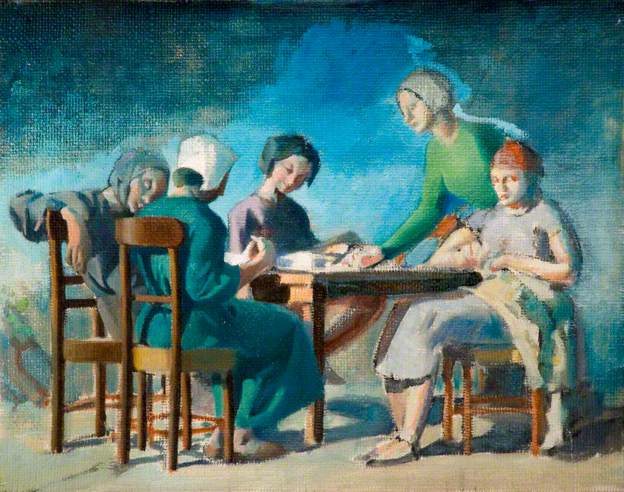What next for working-class life-writing?

by W. E. Pickering. Oil on panel, 37 x 47 cm
Collection: The Potteries Museum & Art Gallery. Via BBC Your Paintings
Thanks to everyone who has completed and shared our survey. Your responses are invaluable in showing how people will use and value an online resource on working-class autobiography, 1700 to the Present. The survey is still live if you would like to have your say.
To help us further, please tell us in the comments below how being able to use distant and close reading methods would contribute to understanding of plebeian or working-class life-writing in your period of research, or for the full period. What are the major studies or approaches to working-class memoir in your field and what more could be done?
We aim to make a large sample of digital copies and transcriptions available, covering all parts of the British Isles across the four centuries. We will be using digital methodologies from corpus linguistics to trace patterns in autobiographical form and expression, figures of speech and quotation, and so on. The public database of biographical entries will enable complex searches on the authorship and content of memoirs (occupation, occupational status, marital status, family and childhood, schooling and religion, geographical and social mobility, politics and recreation, and so on.
Please tell us in the comments what you think these techniques could contribute to the study of life-writing and any pitfalls we should think of!

Leave a Reply